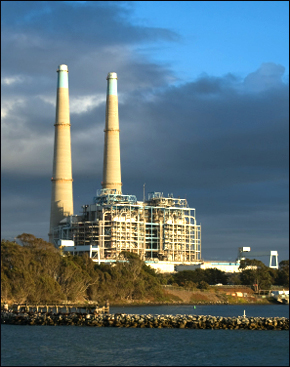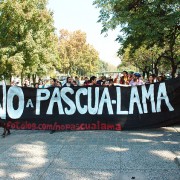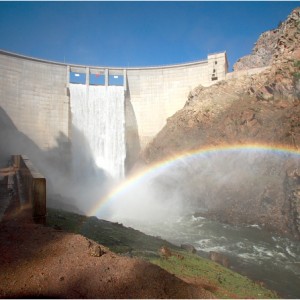World Water Week 2010 Tackles Quality Issues
Canadian teen duo wins the prestigious Stockholm Junior Water Prize for their project on biodegredation.
By Nadya Ivanova
Circle of Blue
Cleaning water with ozone, gambling with the Baltic Sea, and separating lead from dirty water using human hair are among the brainwaves and novel solutions to the world’s water problems that emerged from the 14th annual international competition for the Stockholm Junior Water Prize at World Water Week 2010.
At the awards ceremony in Stockholm last week, H.R.H. Crown Princess Victoria of Sweden granted the winning prize to Canadian teen duo Alexandre Allard and Danny Luong for their project on the biodegradation of the commonly used plastic Polystyrene (EPS).
The winning design, which beat projects from 29 other countries, offers a “novel approach to break-down [plastics] using micro-organisms and enzymes that are cost effective, and readily available,” the international jury said in its citation.
Video by Aaron Jaffe/Circle of Blue
The competition was part of World Water Week 2010, which was held in Stockholm last week. The annual event, hosted by the Stockholm International Water Institute, is a meeting of global experts, practitioners, business innovators and policymakers interested in water.
Although it has to undergo further lab and field tests before it could be implemented, the method can potentially reduce the amount of toxic plastic in the world’s waters and can help restrain the growth of garbage dumps such as the Great Garbage Patch in the Pacific Ocean, Allard told Circle of Blue. Initial tests with three strains of microbes were able to biodegrade about 70 percent of the experimental EPS mass in about two weeks.
Allard, who has just started his first year at college, said that the idea emerged last year after he and Luong read a report about how polystyrene break-down can leach toxic molecules in the ocean.
In the eight months that followed, the teenagers would spend every two days taking experimental data in the lab, analyze results, read scientific literature for hours on end after school and build the project for science fair presentations.
“We did several environmental projects for the past years, and water was always a major concern for us,” Luong said in an e-mail interview. “We found an opportunity to work with water and applied everything we learned from the past years with this project.”
In addition to the international prize, the jury gave a Diploma of Excellence to a three-member team from China for a project that offers creative solutions to water quality challenges in southern China. Other finalists addressed issues ranging from water scarcity and pollution to energy production and environmental awareness.
“Water is certainly taking a much greater place in international policy, but we are still saddened that drastic changes are not made to water usage until dire necessity presents itself,” Luong said. “We are confident, however, because we got to talk to some brilliant people [during World Water Week]…In the end, we believe water is slowly being recognized as synonymous with our existence.”
This year’s World Water Week, which focused on “the water quality challenge,” started with calls for more facilitated efforts in addressing the world’s water problems and wrapped up with an open statement for the upcoming United Nations High Level Plenary Meeting on the Millennium Development Goals.
The document urges the delegates, who will review progress on the achievement of the development targets adopted at the UN Millennium Summit of 2000, to “fully recognize and act upon the fundamental roles of water resources, drinking water, sanitation and water for all,” according to the official press release. It also describes water as one of the most important cross-cutting issues to be addressed at the summit.
The meeting will be held during the 65th Session of the United Nations General Assembly on Sept. 20 through the 22nd.
“Water has definitely not yet received the place it needs to have in the draft outcome of that summit. Good management of water resources and provision of drinking water and sanitation is a prerequisite for fulfilling all the MDGs,” said Anders Berntell, Executive Director of the Stockholm International Water Institute (SIWI), the organization that hosts World Water Week.
Next year’s gathering in Stockholm will examine the global “urban challenge.” The theme will carry on World Water Week’s 2009 to 2012 strategy “Responding to Global Changes”, which looks at the “potential and necessary responses in water policy, management and development to address pervasive and increasingly impacting global changes.”
Read more of Circle of Blue’s coverage of World Water Week 2009.
, a Bulgaria native, is a Chicago-based reporter for Circle of Blue. She co-writes The Stream, a daily digest of international water news trends.
Interests: Europe, China, Environmental Policy, International Security.









Leave a Reply
Want to join the discussion?Feel free to contribute!